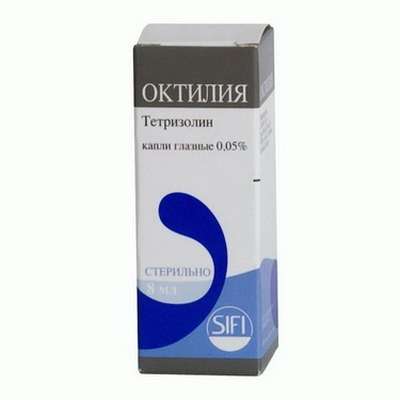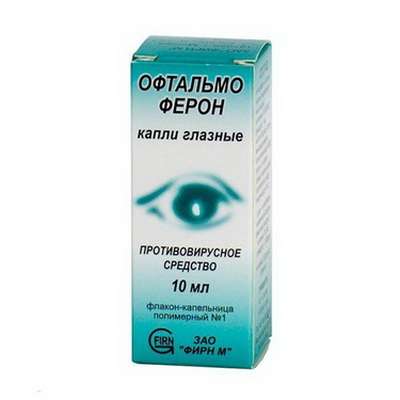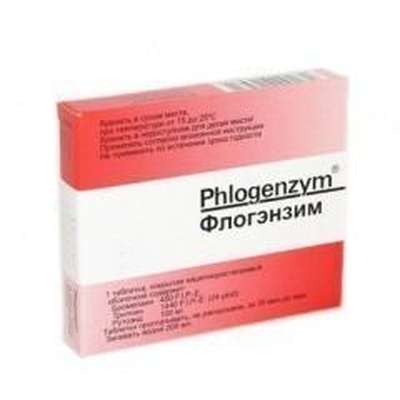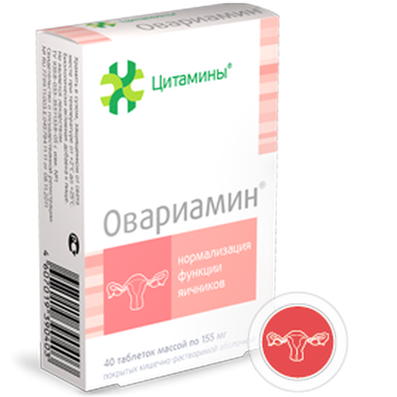Instruction for use: Concor Cor
I want this, give me price
Trade name of the drug Concor Cor
Dosage Form: tablets
Active substance: Bisoprololum
ATX
C07AB07 bisoprolol
Pharmacotherapeutic group: Beta1-selective blocker [Beta-blockers]
The nosological classification (ICD-10)
I50.0 Congestive heart failure: anasarca heart; Decompensated congestive heart failure; Congestive heart failure; Congestive heart failure with high afterload; Congestive chronic heart failure; Cardiomyopathy with severe chronic heart failure; Compensated chronic heart failure; Swelling with circulatory failure; Edema of cardiac origin; Swelling of the heart; Edematous syndrome in diseases of the heart; Edematous syndrome in congestive heart failure; Edematous syndrome in heart failure; Edematous syndrome in heart failure or liver cirrhosis; right ventricular failure; Congestive Heart Failure; Heart failure stagnant; Heart failure with low cardiac output; Heart failure is a chronic; Cardiac edema; Chronic decompensated heart failure; Chronic Congestive Heart Failure; Chronic heart failure; Change of liver function in heart failure
Composition (per tablet):
active substance: bisoprolol fumarate 2.5 mg
Excipients: anhydrous calcium hydrogen phosphate - 134 mg; corn starch fine powder - 15 mg; Anhydrous colloidal silica - 1.5 mg; MCC - 10 mg; crospovidone - 5.5 mg; Magnesium stearate - 1.5 mg
shell film: hypromellose 2910/15 - 2.2 mg; macrogol 400 - 0,53 mg; Dimethicone 100 - 0.11 mg; titanium dioxide (E171) - 1.22 mg
Description
White, heart-shaped, biconvex tablets, film-coated, with Valium on both sides.
Pharmacological Properties of Concor Cor
Pharmachologic effect - antianginal, hypotensive, anti-arrhythmic.
Pharmacodynamics
Selective β1-blocker, without its own sympathomimetic activity, has no membrane stabilizing action. He has only a negligible affinity for the β2-adrenoceptor smooth muscles of the bronchi and vessels as well as the β2-adrenergic receptors, involved in the regulation of metabolism. Therefore, bisoprolol generally does not affect the airway resistance and metabolic processes that involve β2-adrenoretsetseptory. The
selective effect of the drug on the β1-adrenergic receptors and is stored outside of the therapeutic range.
For a single application in patients with coronary artery disease with no evidence of heart failure bisoprolol reduces the heart rate, stroke volume and, as a consequence, reduces the ejection fraction and myocardial oxygen demand. When long-term therapy initially elevated peripheral vascular resistance is reduced.
Pharmacokinetics
Suction. Bisoprolol almost completely (> 90%) absorbed from the gastrointestinal tract. Due to its low bioavailability metabolization at the first passage through the liver (at about 10%) is approximately 90% after oral administration. Food does not affect the bioavailability. Bisoprolol demonstrates linear kinetics, and its plasma concentration is proportional to the dose in the range of 5 to 20 mg. Cmax plasma levels achieved in 2-3 hours.
Distribution. Bisoprolol is distributed widely enough. Vd - 3,5 l / kg. Binding to plasma proteins reaches about 30%.
Metabolism. It is metabolized by oxidative way without subsequent conjugation. All metabolites are polar (water soluble) and the kidneys. Major metabolites detected in plasma and urine did not exhibit pharmacological activity. Data obtained from experiments with microsomes in vitro human liver demonstrate that bisoprolol primarily metabolized via CYP3A4 isoenzyme (about 95%), a CYP2D6 isozyme plays only a small role.
Withdrawal. The clearance of bisoprolol is determined by the equilibrium between its excretion by the kidneys unchanged (about 50%) and metabolism in the liver (approximately 50%) to metabolites which are then excreted by the kidneys also. Total clearance - 15 l / h. T1 / 2 - 10-12 h.
There is no information on the pharmacokinetics of bisoprolol in patients with chronic heart failure and simultaneous impaired liver or kidney function.
Indications of Konkor Cor
chronic heart failure.
Contraindications
Hypersensitivity to bisoprolol or any of the excipients (see "Composition".);
acute heart failure, chronic heart failure decompensation requiring of inotropic therapy;
cardiogenic shock;
AV blockade II and III level, without pacemaker;
syndrome sick sinus;
sinoatrial block;
bradycardia (heart rate <60 beats / min..);
severe hypotension (SBP <100 mm Hg..);
severe bronchial asthma or chronic obstructive pulmonary disease;
The expressed disturbances of peripheral arterial circulation or Raynaud's syndrome;
pheochromocytoma (without the simultaneous use of α-blockers);
metabolic acidosis;
age 18 years (insufficient efficacy and safety data in this age group).
Precautions: conducting desensitizing therapy, Prinzmetal angina, hyperthyroidism, diabetes mellitus type I and diabetes with significant fluctuations in blood glucose concentration, AV block I degree, renal failure (Cl creatinine <20 ml / min), expressed human liver, psoriasis , restrictive cardiomyopathy, congenital heart defects or heart disease valve with severe hemodynamic disturbances, heart failure with myocardial infarction within the last 3 months, a strict diet.
Pregnancy and breast-feeding
When pregnancy ConcorŪ Corinthians should be advised to use only if the benefit to the mother outweighs the risk of side effects in the fetus and / or the child.
Typically, β-blockers decrease the blood flow in the placenta and can affect fetal development. It should monitor blood flow in the placenta and uterus, and also to observe the growth and development of the child and in the event of adverse events in respect of pregnancy and / or fetal take alternative therapies.
It is necessary to carefully examine the newborn after delivery. In the first 3 days of life symptoms of bradycardia and hypoglycemia may occur.
Data on the allocation of bisoprolol into breast milk is not. Therefore, the drug ConcorŪ Cor is not recommended for women during lactation. If administration during lactation is necessary, breast-feeding should be discontinued.
Side effect
The frequency of adverse reactions listed below was determined according to the following: very common (≥1 / 10); commonly (≥1 / 100, <1/10); uncommon (≥1 / 1000, <1/100); rare (≥1 / 10,000, <1/1000); very rare (<1/10000).
CNS: often - dizziness, headache; rare - loss of consciousness.
General disorders: often - asthenia, fatigue.
Mental disorders: rarely - depression, insomnia; rarely - hallucinations, nightmares.
From a sight organ: seldom - a decrease in lacrimation (to consider when wearing contact lenses); very rarely - conjunctivitis.
On the part of the organ of hearing: rarely - hearing impairment.
From the CCC: very often - bradycardia; often - current worsening heart failure symptoms, feeling cold weather or numbness in the extremities, marked reduction in blood pressure; rarely - a violation of AV conduction, orthostatic hypotension.
With the respiratory system: rarely - bronchospasm in patients with asthma or airway obstruction in history; rarely - allergic rhinitis.
From the digestive system: often - nausea, vomiting, diarrhea, constipation; rarely - hepatitis.
From the musculoskeletal system: rarely - muscle weakness, muscle cramps.
For the skin: rarely - hypersensitivity reactions, such as itching, rash, redness of the skin; very rare - alopecia. β-blockers may exacerbate psoriasis current symptoms or induce psoriasis-like rash.
From the reproductive system: rarely - a violation of potency.
Laboratory findings: rare - increase in the concentration of triglycerides and liver transaminases in the blood (AST and ALT).
Interaction
On the efficacy and tolerability of the bisoprolol may affect concomitant use of other drugs. Such interaction may also occur in those cases where the two drugs taken after a short time. The doctor should be informed about taking other medicines, even if they are received without a doctor's prescription (ie, non-prescription drugs).
Not recommended combinations
Class I antiarrhythmics (eg quinidine, disopyramide, lidocaine, phenytoin, flecainide, propafenone), while the use of bisoprolol may reduce AV conduction and contractile ability of the heart.
BCCI such as verapamil and to a lesser extent diltiazem while the use of bisoprolol may lead to a decrease in myocardial contractility and AV conduction disorders. In particular, in / with the introduction of verapamil in patients receiving β-blockers may lead to severe hypotension and AV blockade.
Antihypertensive drugs central action (such as clonidine, methyldopa, moxonidine, rilmenidine) may lead to a slowing of the heart rate and reducing cardiac output and to vasodilatation due to the reduction of the central sympathetic tone. Abrupt withdrawal, particularly to cancellation β-blockers, may increase risk of "rebound" hypertension.
Combinations requiring special care
BCCI, dihydropyridine derivatives (eg, nifedipine, felodipine, amlodipine), while the use of bisoprolol may increase the risk of hypotension. In patients with heart failure cannot eliminate the risk of further deterioration of the contractile function of the heart.
Class III antiarrhythmics (eg amiodarone) may increase the violation of AV conduction.
The action of β-blockers for topical application (eg eye drops for glaucoma treatment) may enhance the systemic effects of bisoprolol (lowering blood pressure, slowing of the heart rate).
Parasympathomimetics while the use of bisoprolol may increase the violation of AV conduction and increase the risk of bradycardia.
Hypoglycemic effect of insulin or hypoglycemic agents for oral administration can be enhanced. Symptoms of hypoglycaemia - particularly tachycardia - may be masked or suppressed. Such interactions are more likely when using a nonselective β-blockers.
Funds for general anesthesia may increase the risk cardiodepressive action, resulting in hypotension (see. "Special Instructions").
Cardiac glycosides while the use of bisoprolol may lead to an increase of the pulse of time and, thus, to the development of bradycardia.
NSAIDs may reduce the hypotensive effect of bisoprolol.
The simultaneous use of the drug KonkorŪ Cor with β-agonists (eg isoprenaline, dobutamine) may reduce the effect of both drugs.
Bisoprolol combination with agonists affecting β- and α-adrenergic receptors (such as norepinephrine, epinephrine) can amplify the effects of vasoconstrictor agents encountered with α-adrenergic receptors, resulting in an increase in blood pressure. Such interactions are more likely when using a nonselective β-blockers.
Antihypertensive agents, as well as other antihypertensive agents with the possible effect (e.g. tricyclic antidepressants, barbiturates, phenothiazines), may enhance the hypotensive effect of bisoprolol.
Mefloquine while the use of bisoprolol may increase the risk of bradycardia.
MAO inhibitors (except MAO inhibitors) may increase the hypotensive effect of β-blockers. Concomitant use can also lead to the development of hypertensive crisis.
Dosage and Administration
Inside.
Tablets Concor Cor drug should be taken once a day with a small amount of liquid in the morning before breakfast, during or after it. Tablets should not be chewed or triturate.
The standard scheme of CHF treatment involves the use of ACE inhibitors or angiotensin II receptor antagonists (in case of intolerance to ACE inhibitors), β-blockers, diuretics, and optionally cardiac glycosides. Start treating heart failure drug ConcorŪ Cor necessarily require the special titration phase and regular medical supervision.
A prerequisite for treatment with ConcorŪ Cor is stable chronic heart failure without acute symptoms.
CHF ConcorŪ Cor drug treatment is started in accordance with the following titration scheme. This may require individual adaptation depending on how well the patient carries the prescribed dose, ie. E. The dose can be increased only if the previous dose was well tolerated.
The recommended initial dose is 1.25 mg 1 time a day. Depending on individual tolerability, the dose should be gradually increased to 2.5 mg, 3.75 mg, 5 mg, 7.5 mg and 10 mg 1 time per day. Each subsequent increase in dose should be administered at least 2 weeks.
If an increase in the dose of the drug is poorly tolerated by the patient, the dose may be reduced.
The maximum recommended dose for the treatment of chronic heart failure is 10 mg ConcorŪ Cor 1 per day.
During titration we recommend regular monitoring of blood pressure, heart rate and severity of heart failure symptoms. Worsening symptoms of CHF may flow since the 1st day of the drug.
If the patient does not tolerate the maximum recommended dose, you should consider a gradual reduction of the dose.
During the titration phase, or it can occur after a temporary deterioration in the flow of CHF, hypotension or bradycardia. In this case it is recommended first of all carry out the correction of concurrent therapy doses of drugs. You may also need a temporary reduction in dose ConcorŪ Cor or cancellation.
After stabilization, the patient should undertake a re-titration of the dose or continue the treatment.
Duration of treatment
Treatment with ConcorŪ Cor is usually a long-term therapy.
Special patient groups
Impaired renal or hepatic function:
- In violation of mild or moderate liver or kidney function usually do not need to adjust the dose;
- When expressed violations kidney (Cl creatinine <20 ml / min) and in patients with severe liver disease, the maximum daily dose is 10 mg; increasing the dose in such patients should be administered with extreme caution.
Elderly patients: Dosage adjustment is not required.
Children: Since there is not enough of the drug for use in children Cor ConcorŪ data, it is not recommended to prescribe a drug to children under 18 years.
There are currently insufficient data on the use of the drug ConcorŪ Cor in patients with heart failure in combination with type 1 diabetes, severe impaired renal function and / or liver disease, restrictive cardiomyopathy, congenital heart defects or heart disease valve with severe hemodynamic compromise. Also still not sufficient data has been obtained relative to CHF patients with myocardial infarction within the past 3 months.
Overdose
Symptoms: The most common - AV block, bradycardia, marked reduction in blood pressure, bronchospasm, acute cardiac insufficiency and hypoglycaemia.
Sensitivity to a single high dose of bisoprolol reception varies greatly among individual patients, and it is likely that patients with CHF have high sensitivity.
Treatment: If overdose occurs, first of all, you need to stop taking the drug and start supporting symptomatic therapy.
In severe bradycardia: in / atropine. If the effect is insufficient, it can be entered with caution agent with positive chronotropic effect. Sometimes it may require temporary staging an artificial pacemaker.
In marked decrease in blood pressure: in / in a plasma-solutions and vasopressor drugs.
When AV blockade: patients should be under constant supervision and be treated with β-adrenergic agonists such as epinephrine. If necessary - setting an artificial pacemaker.
When exacerbation of chronic heart failure: in / with the introduction of diuretics, drugs with positive inotropic effect and vasodilators.
When bronchospasm: the appointment of bronchodilators, including β2-agonists and / or aminophylline.
When hypoglycemia: in / with the introduction of dextrose (glucose).
Special instructions
Do not interrupt treatment with ConcorŪ Cor sharply and did not change the recommended dose without first consulting your doctor, because this may lead to a temporary worsening of cardiac activity. Treatment should not be interrupted suddenly, especially in patients with CAD. If discontinuation is necessary, the dosage should be reduced gradually.
In the initial stages of treatment ConcorŪ Cor patients need constant monitoring.
The drug should be used with caution in the following cases:
- Diabetes mellitus with significant fluctuations in the concentration of glucose in the blood - the symptoms expressed by reducing the concentration of glucose (hypoglycemia), such as tachycardia, palpitations and sweating may be masked;
- strict diet;
- Conducting desensitizing therapy;
- AV block of I degree;
- Prinzmetal angina;
- Peripheral arterial circulatory disorders of mild to moderate degree (at the beginning of treatment may be increased symptoms);
- Psoriasis (including history).
Respiratory system: bronchial asthma or COPD shows the simultaneous use of bronchodilator agents. Patients with asthma may increase airway resistance, which requires higher doses of β2-agonists.
Allergic reaction: β-adrenoblokatary, including drug ConcorŪ Cor, may increase the sensitivity to allergens and the severity of anaphylactic reactions due to the weakening of compensatory adrenergic regulation under their influence. Therapy epinephrine (adrenaline) does not always give the expected therapeutic effect.
General anesthesia: general anesthesia should consider the risk of β-adrenoceptor blockade. If you want to stop therapy with ConcorŪ Corinthians before surgery, this should be done gradually and completed within 48 hours prior to general anesthesia. It is necessary to warn the anesthetist on the use of the drug by the patient ConcorŪ Cor.
Pheochromocytoma: in patients with adrenal gland tumor (pheochromocytoma) ConcorŪ Cor drug can only be assigned to treatment with alpha-blockers.
Hyperthyroidism: in the treatment of drug ConcorŪ Cor symptoms of hyperthyroidism (hyperthyroidism) can be masked.
Effects on ability to drive vehicles and complex mechanisms. The drug ConcorŪ Cor does not affect the ability to drive vehicles according to a study in patients with CAD. However, the ability to drive vehicles or operate technically complex mechanisms may be impaired as a result of individual reactions. It should be emphasized at the start of treatment, after changing the dose and while consuming alcohol.
Release Form
Tablets, film-coated, 2.5 mg: in blister packs of PVC and aluminum foil at 10, 14, 25 or 30 pieces .; In the paper cartons 3 blisters of 10 pieces. or 1 blister 14 pcs. or 2 blisters of 25 pieces. or 1 blister 30 pcs.
Manufacturer
Merck KGaA, Germany. Frankfurter Strasse 250, 64293 Darmstadt, Germany.
Claims consumers sent to OOO "Takeda Pharmaceuticals." 119048, Moscow, ul. Usachev, 2, p. 1.
Conditions of supply of pharmacies
On prescription.
Storage conditions of Concor Cor
The temperature is not above 25 ° C.
Keep out of the reach of children.
Shelf life
3 years.
Do not use beyond the expiration date printed on the package.

 Cart
Cart





